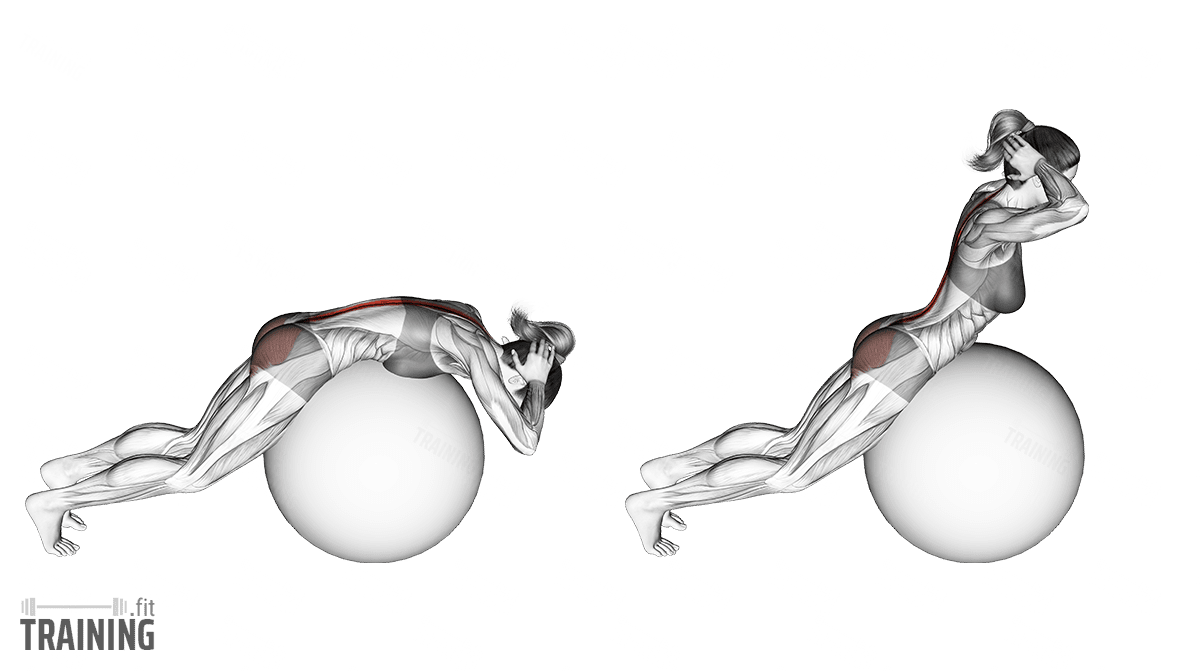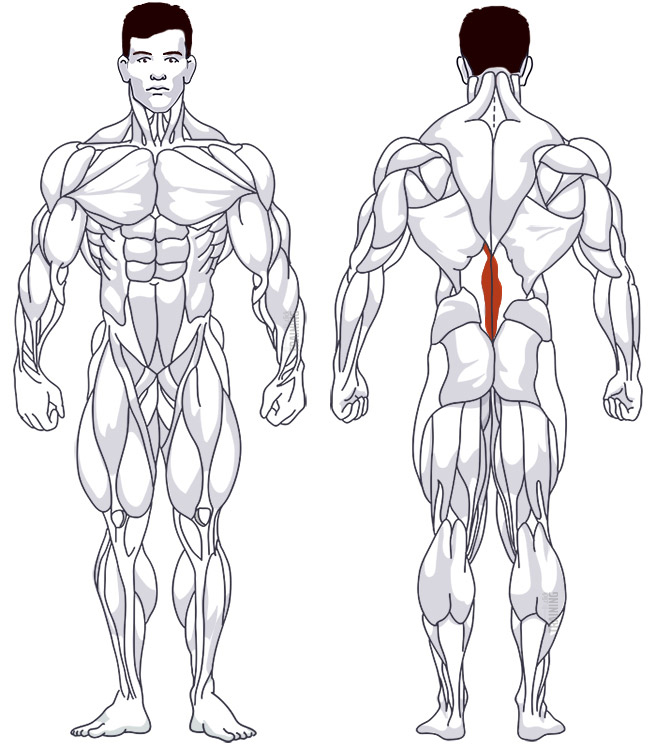Stability Ball: Back Extension
Isolation exercise, Body weightOverview

Main muscles
- Back: Back extensor
(Musculus erector spinae)
Training plans
Stability Ball: Back Extension is a suitable substitute for similar exercises in lower back training or as a supplement to various training plans.
Stability Ball: Back Extension: Basics and alternatives

Involved main muscle groups:
Stability Ball: Back Extension
The Stability Ball: Back Extension is a unique variation of the traditional Back Extension on the Hyperextensions bench, making it ideal for home workouts. The movement is basically the same: you bend and straighten your upper body with your legs straight, targeting your lower back specifically and in isolation.
However, since the stability ball provides less support than a bench, more muscles (like the glutes) are also engaged for proper and safe training.
If you don’t have a stability ball, you can perform the Back Extension lying on the floor or on a flat bench. As alternative compound exercises, Deadlifts or Good Mornings are also suitable in the gym.
Correct execution
The biggest challenge of this exercise is stabilizing your body on the ball, which takes practice and patience. You might not be able to use the full range of motion initially, as the supporting muscles and balance need time to adapt to the load.
If you’re having trouble stabilizing the ball and it rolls away, position yourself so that your feet are against a wall. This will relieve your auxiliary muscles and stabilize the ball. As you progress, you can move to different locations and positions in the room.
There’s often debate about arm position. You can place your hands behind your head or in front of your chest. Behind the head, they won’t get in the way at the end of the bending movement, but it may lead to overstretching. Be mindful not to overstretch your back (see “Common Mistakes” below).
Video tutorial
Step-by-Step instructions
Lie down on the stability ball with your stomach. Keep your legs straight and your feet firmly on the ground, about hip-width apart.
Position your upper body parallel to the ground on the ball.
Place your hands behind your head or neck, or in front of your chest (see above). You’re now in the starting position.
Straighten your upper body over your hips, so that your thighs and torso form a line.
Alternative execution with rotation
For an alternative approach, you can incorporate a rotation into the exercise. The following video demonstrates how to do this, helping you activate your back muscles even more.
Common mistakes
As with regular back extensions, avoid overstretching your lower back. This occurs when you intensify the arch in your back after straightening your upper body, in order to move your head even further back. Make sure you stop the upward movement when your thighs and upper body are in a straight line.